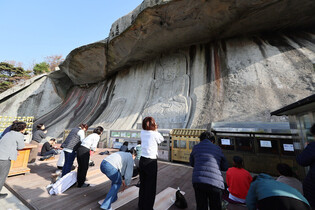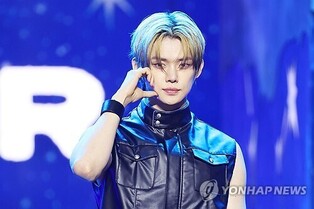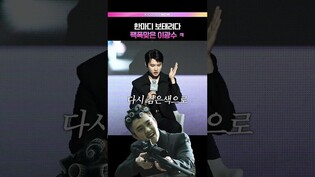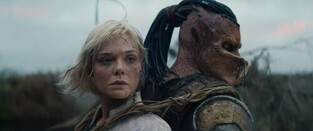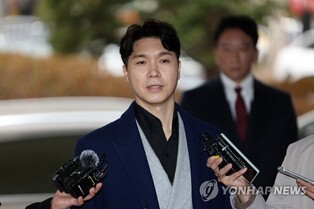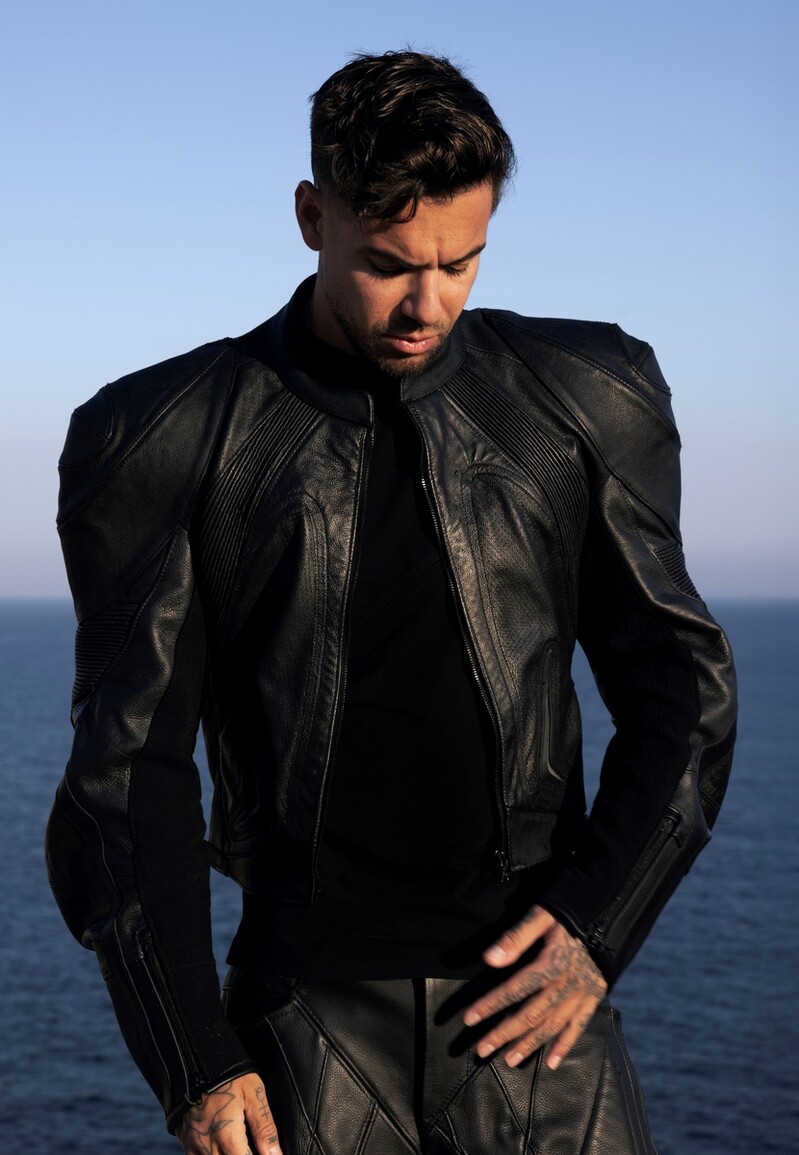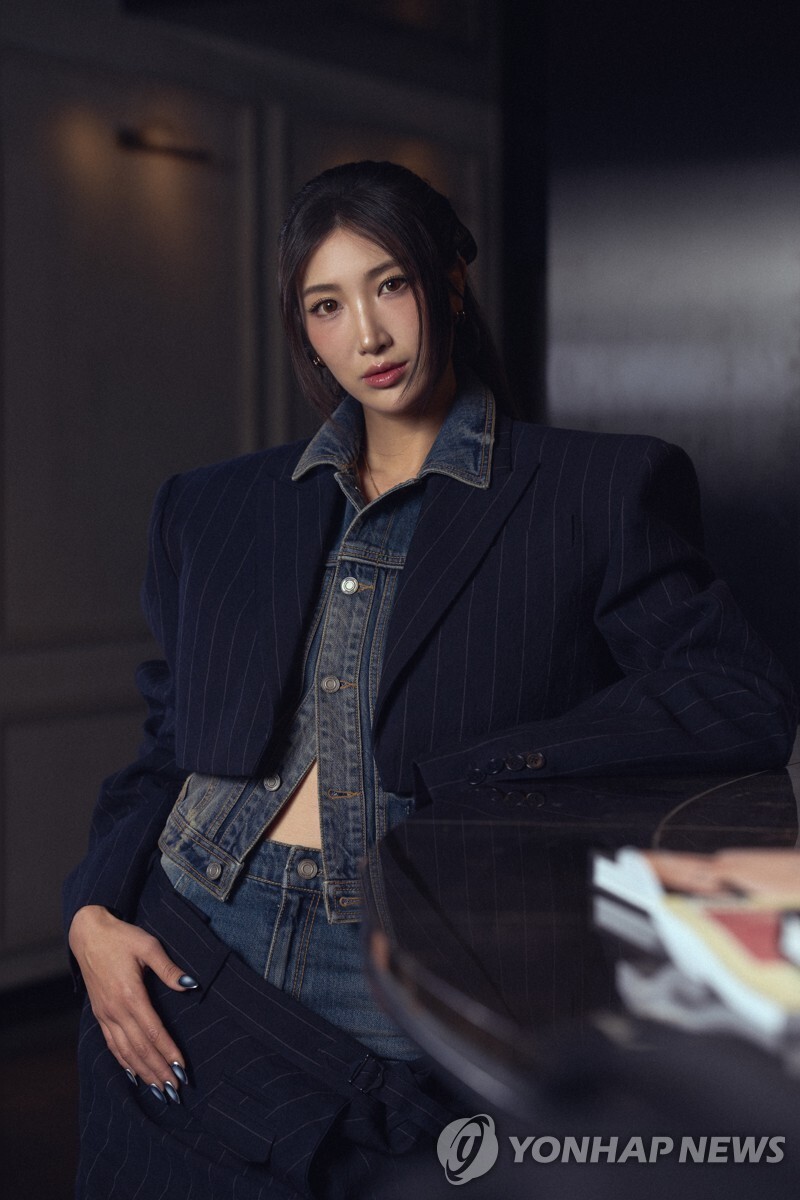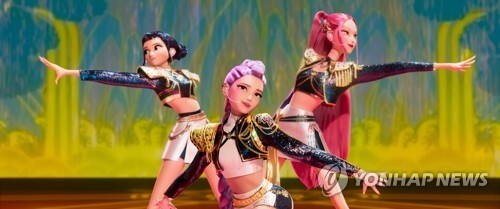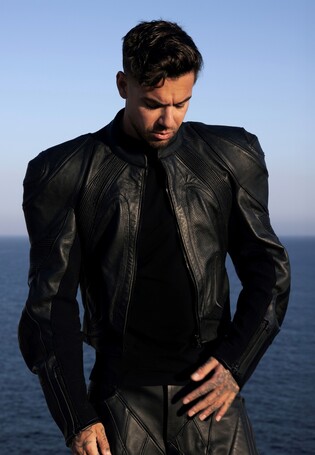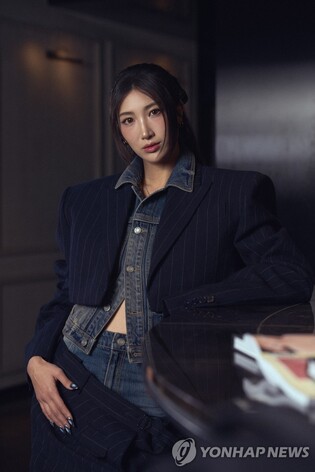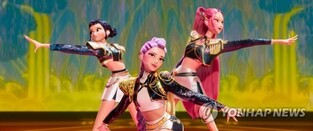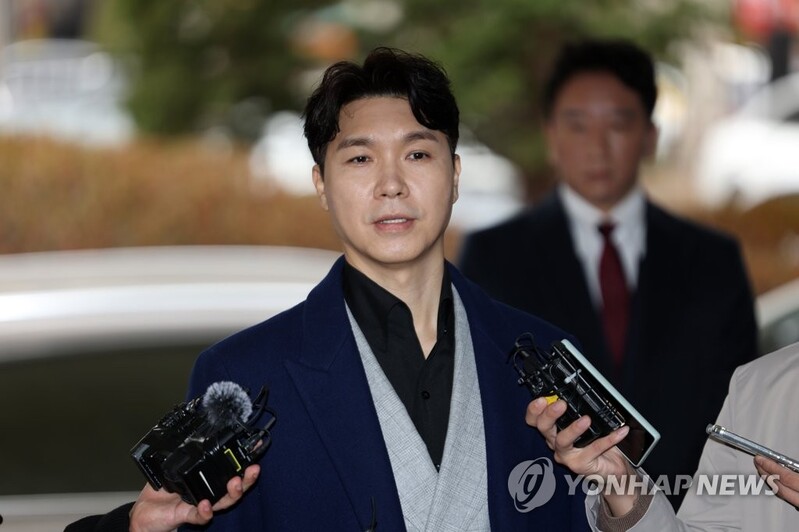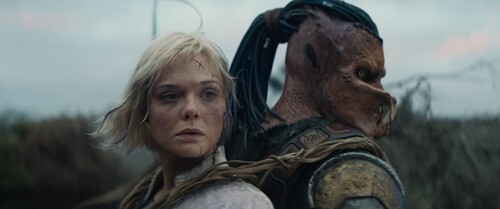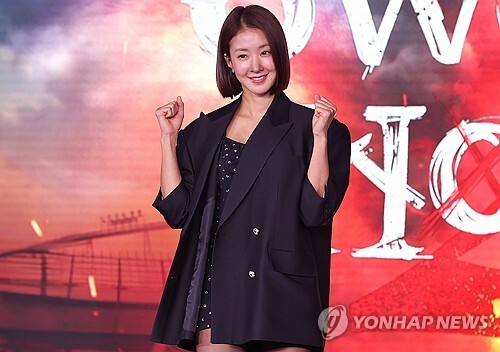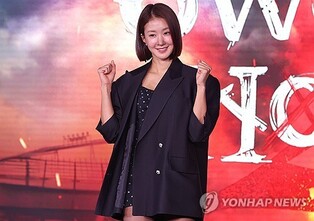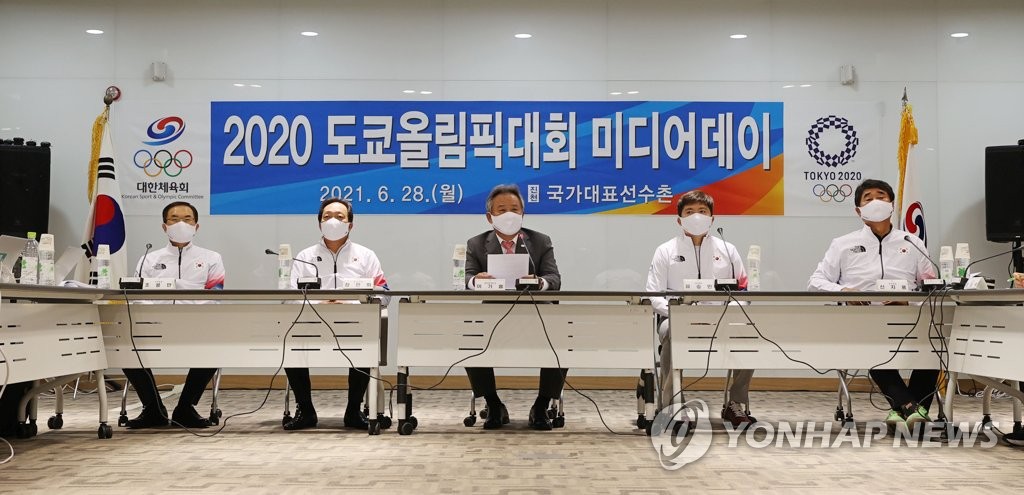 |
| ▲ South Korean Olympic leaders attend a joint press conference at the Jincheon National Training Center in Jincheon, 90 kilometers south of Seoul, on June 28, 2021. From left are Cho Yong-man, secretary general of the Korean Sport & Olympic Committee (KSOC); Jang In-hwa, head of mission for South Korea at the Tokyo Olympics; Lee Kee-heung, president of the KSOC; Ryu Seung-min, a member of the International Olympic Committee; and Shin Chi-yong, director of the Jincheon National Training Center. (Yonhap) |
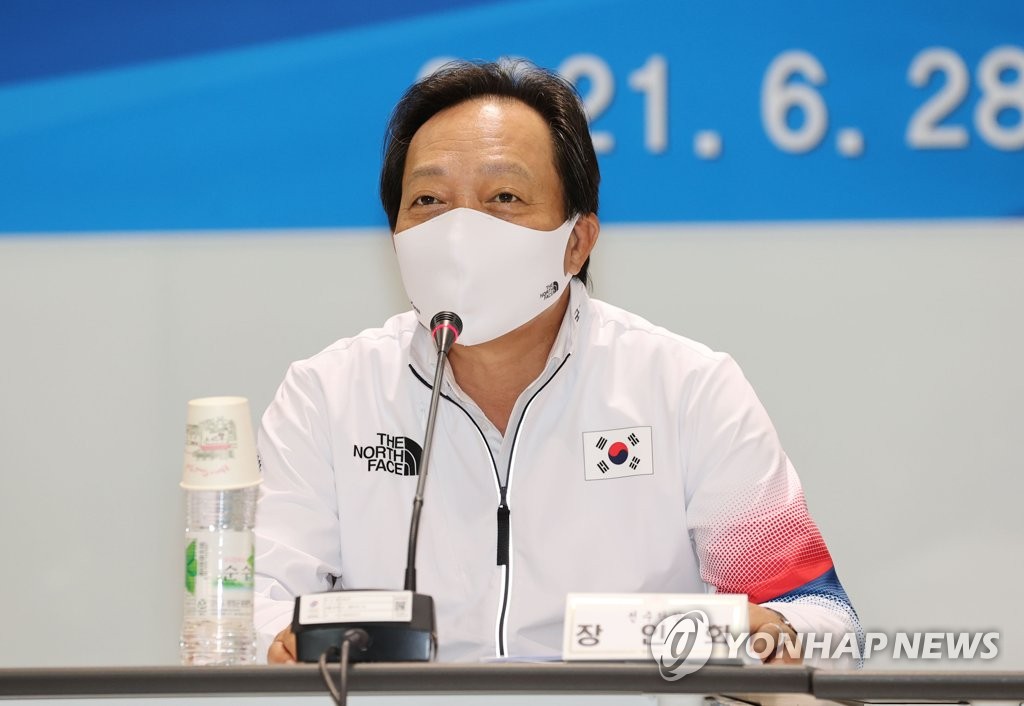 |
| ▲ Jang In-hwa, head of mission for South Korea at the Tokyo Olympics, speaks at a press conference at the Jincheon National Training Center in Jincheon, 90 kilometers south of Seoul, on June 28, 2021. (Yonhap) |
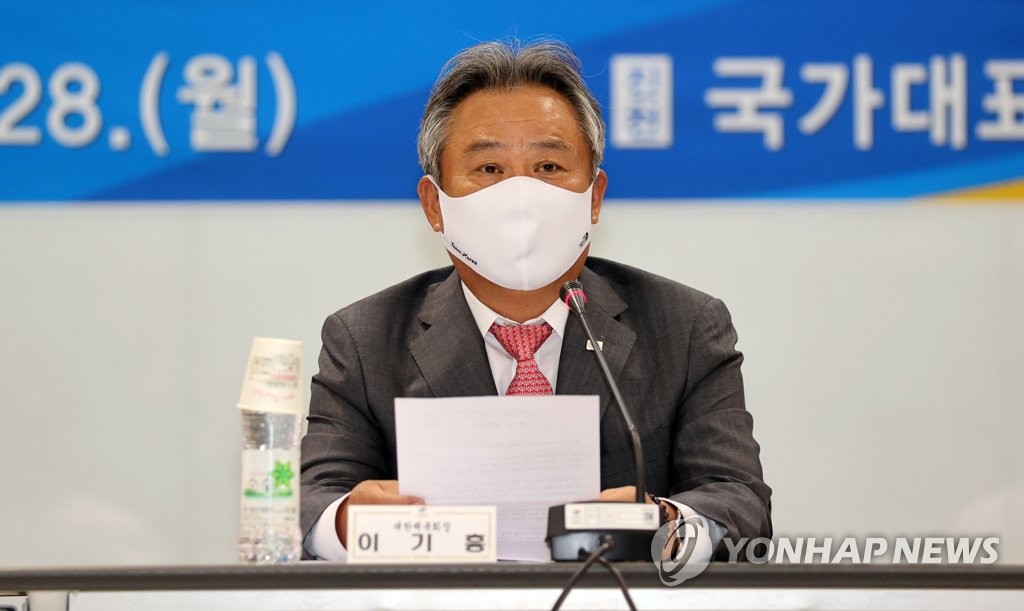 |
| ▲ Lee Kee-heung, president of the Korean Sport & Olympic Committee, speaks at a press conference at the Jincheon National Training Center in Jincheon, 90 kilometers south of Seoul, on June 28, 2021 |
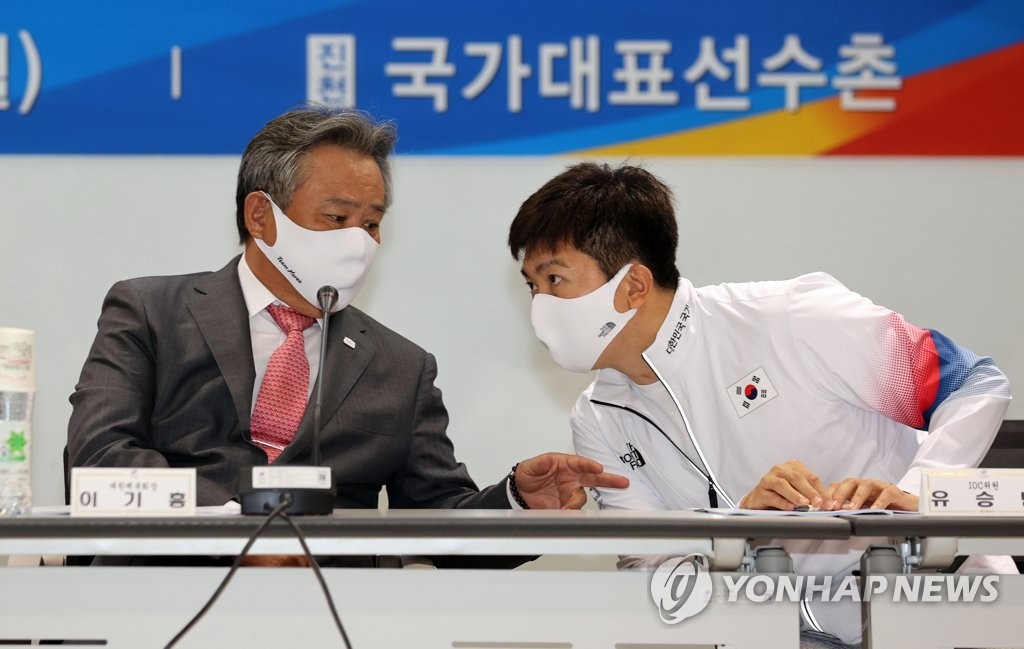 |
| ▲ Lee Kee-heung (L), president of the Korean Sport & Olympic Committee, and Ryu Seung-min, a member of the International Olympic Committee, speak during a press conference at the Jincheon National Training Center in Jincheon, 90 kilometers south of Seoul, on June 28, 2021. (Yonhap) |
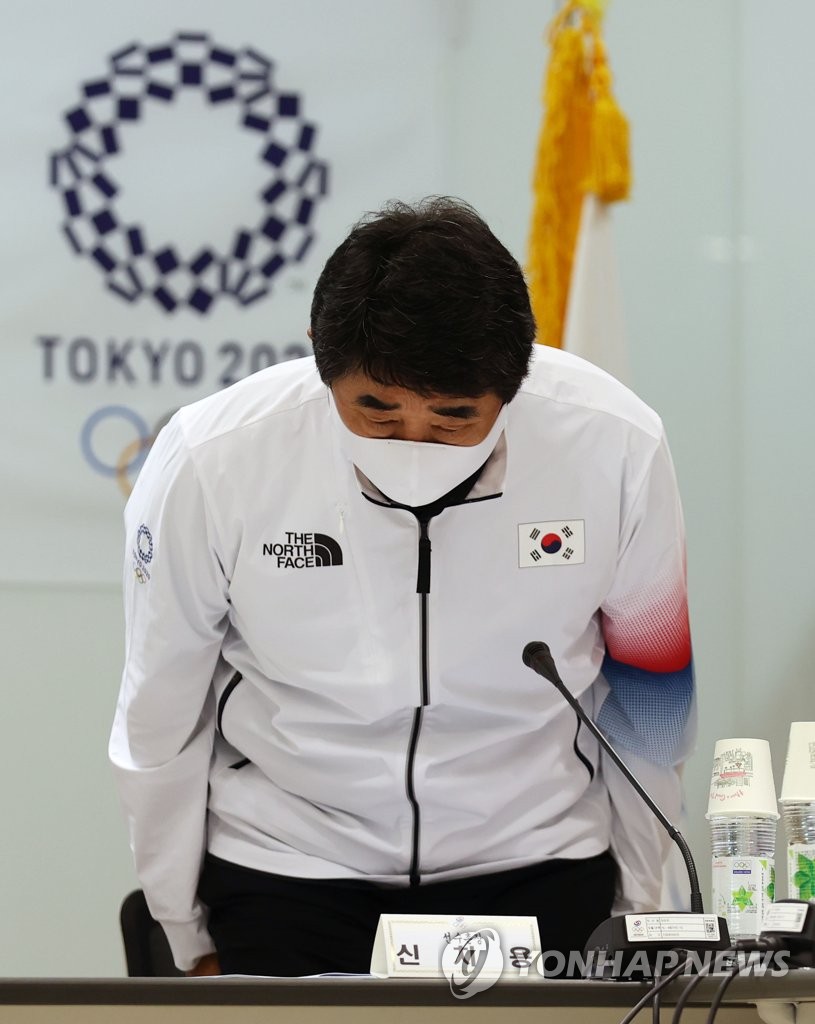 |
| ▲ Shin Chi-yong, head of the Jincheon National Training Center, takes a bow before the start of a press conference at the Olympic training facility in Jincheon, 90 kilometers south of Seoul, on June 28, 2021. (Yonhap) |
(LEAD) S Korea-Olympics
(LEAD) S. Korean Olympic leaders vow to serve 'clean' food for athletes in Tokyo
(ATTN: ADDS background, details, photos)
JINCHEON, South Korea, June 28 (Yonhap) -- South Korean Olympic leaders pledged on Monday that the country's athletes at the Tokyo Summer Games will be fed fresh and clean food, dispelling concerns over ingredients from a Japanese prefecture hit with radioactive contamination.
At a press conference at the Jincheon National Training Center in Jincheon, 90 kilometers south of Seoul, Jang In-hwa, head of mission for South Korea at the Tokyo Olympics, fielded a question about meals for South Korean athletes and whether they'll be eating food from Fukushima, an area exposed to high levels of radiation following a tsunami-triggered meltdown at a nuclear power plant in March 2011.
"We've already sent some ingredients from here to Tokyo, to a dining center near the athletes' village," Jang said. "For fruits, meat and seafood, we'll only supply verified local products. We'll be preparing boxed meals for our athletes at competition and training venues."
Lee Kee-heung, head of the Korean Sport & Olympic Committee (KSOC) and a member of the International Olympic Committee (IOC), said the IOC, the World Health Organization and the International Atomic Energy Agency (IAEA) are having discussions on serving of Fukushima-produced food.
"We'll be educating our athletes on eating fish and other types of seafood (while in Japan)," Lee added.
In April, South Korea expressed "strong regret" over Japan's decision to release contaminated water from the wrecked Fukushima power plant into the ocean. The foreign ministry here summoned Koichi Aiboshi, Japan's top envoy to Seoul, to protest Tokyo's move.
Lee touched upon other sensitive matters.
On whether the IOC will sanction any display of the Rising Sun Flag, once used by the Japanese imperial army, Lee said: "The IOC and Tokyo's organizing committee will come down hard on the display of the flag. I believe it won't be allowed at venues. We'll be working with China and Russia on that front."
South Korean sports officials have been up in arms over Japan's depiction of Dokdo, the easternmost islets for Korea, as its own on an Olympic map.
When pressed by South Korea, the IOC dubbed Japan's placing of Dokdo on its map as a "purely topographical expression" with "no political motivation whatsoever."
"I plan to meet with (IOC President Thomas) Bach in Tokyo and discuss this issue," Lee said, adding that he hasn't been able to visit the IOC office in Switzerland with the Olympics so close.
As for the competition itself, the KSOC is projecting six to seven gold medals for South Korea. It would place the country anywhere between 10th and 15th in the medal race, the KSOC added. The country has ranked inside the top 10 at each of the past four Summer Olympics, dating back to Athens 2004.
"Our athletes have had to deal with so much adversity, including COVID-19, the uncertain status of the Olympics, and political and diplomatic issues," said Shin Chi-yong, head of the Jincheon National Training Center.
"Hopefully, we'll have strong starts in archery and taekwondo early on, and then baseball and football will provide the finishing touch in the medal race near the end."
As of Sunday, 226 athletes in 29 sports had qualified for Tokyo. South Korea sent 204 athletes in 24 sports to the 2016 Olympics in Rio de Janeiro.
The Olympic qualifying events will run through early July, with the men's basketball qualifying events to be staged from Tuesday to Sunday. The deadline to submit entries for the Olympics is next Monday.
(END)
(C) Yonhap News Agency. All Rights Reserved

















